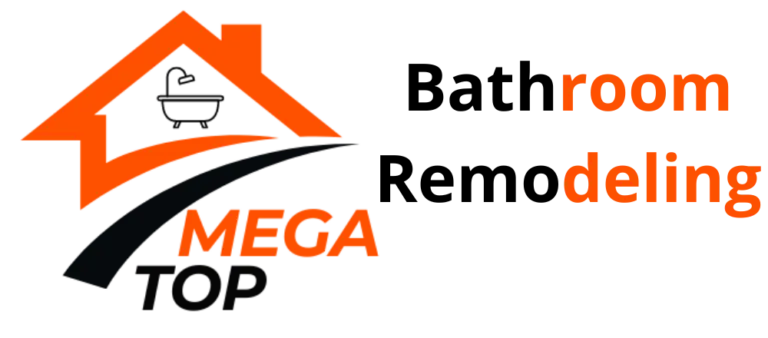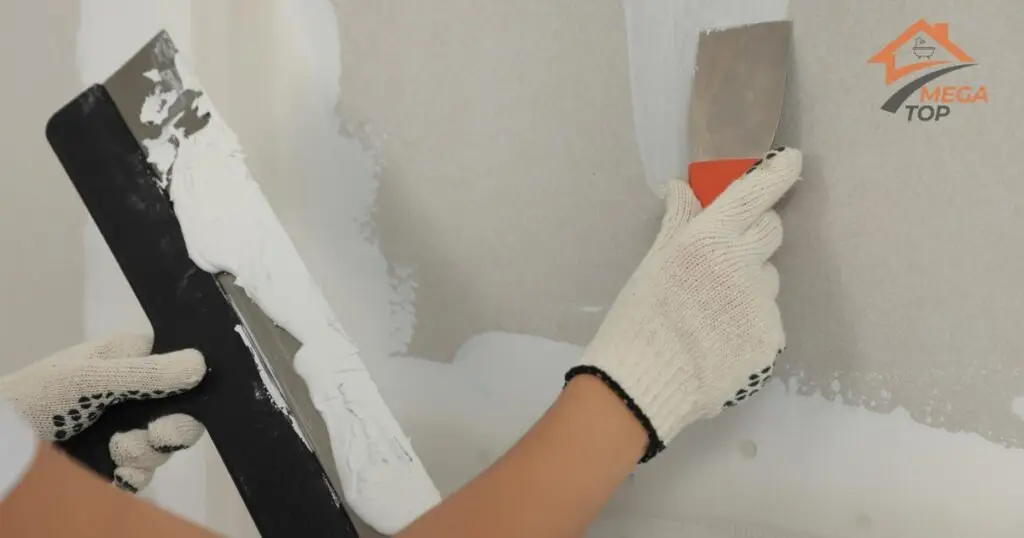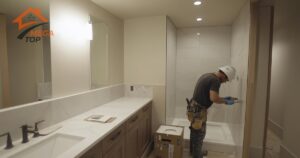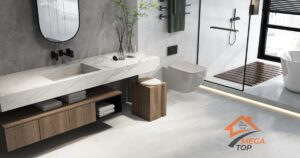Why Shower Waterproofing Is Essential
Waterproofing is a critical step in shower construction or remodeling. Without it, moisture can seep into walls and floors, causing structural damage, mold growth, and costly repairs.
Risks of Inadequate Waterproofing
- Mold and Mildew Growth: Moist environments promote mold, posing health risks.
- Structural Damage: Water infiltration can weaken floors and walls over time.
- Costly Repairs: Fixing water damage is far more expensive than proper waterproofing.
Benefits of Proper Waterproofing
- Longevity: A waterproofed shower lasts longer and requires fewer repairs.
- Hygiene: Reduces the likelihood of mold and mildew buildup.
- Peace of Mind: Ensures no hidden leaks damage your home.
The Four Types of Shower Waterproofing
Each method of shower waterproofing offers unique benefits, and the best choice depends on your project’s requirements.
1. Membrane Waterproofing
Membrane waterproofing is one of the most reliable and widely used methods for showers.
Sheet Membranes: Features and Benefits
- Material: Made from polyethylene or rubber.
- Installation: Sheets are cut to fit and adhered to surfaces with thin-set mortar or adhesive.
- Advantages: Highly durable and provides a continuous waterproof barrier.
Liquid Membranes: Application Process
- Material: A paint-like liquid that cures into a flexible, waterproof layer.
- Application: Applied with a roller or brush to walls and floors.
- Advantages: Easy to apply and ideal for irregular shapes or tight corners.
2. Cement Board Waterproofing
Cement boards, such as HardieBacker, are commonly used as a base layer in shower installations.
How Cement Board Works as a Base
- Purpose: Acts as a water-resistant substrate for tiles.
- Usage: Installed over a moisture barrier or combined with additional waterproofing layers.
Installation Tips and Common Pitfalls
- Tips: Use waterproof tape and thin-set mortar to seal joints.
- Pitfalls: Cement board is water-resistant but not waterproof, requiring extra protection like membranes.
3. Foam Backer Board Waterproofing
Foam backer boards, such as Wedi or Kerdi-Board, are lightweight and versatile alternatives to cement board.
Lightweight and Easy-to-Install Options
- Material: Made from extruded polystyrene foam with a waterproof coating.
- Advantages: Lightweight, easy to cut, and naturally waterproof.
Cost and Durability Considerations
- Cost: More expensive than cement board.
- Durability: Highly resistant to water damage and mold.
4. Waterproofing with Plastic Liners
Plastic liners are often used as a secondary barrier under shower bases and walls.
Using Liners as Moisture Barriers
- Material: Made of PVC or similar waterproof materials.
- Placement: Installed beneath the tile bed or shower pan.
Pros and Cons of Liner-Based Systems
- Pros: Inexpensive and effective for protecting underlying surfaces.
- Cons: Requires precise installation to prevent leaks.
Comparing Waterproofing Methods
Cost and Installation Complexity
- Membrane Waterproofing: Mid to high cost; relatively easy for DIYers.
- Cement Board: Affordable but requires additional waterproofing.
- Foam Backer Boards: High cost but quick installation.
- Plastic Liners: Low cost but can be labor-intensive to install properly.
Durability and Maintenance Needs
- Membrane waterproofing and foam backer boards offer superior durability.
- Cement board systems require more upkeep to prevent water infiltration.
DIY vs Professional Waterproofing
Tools and Materials Needed for DIY
- Membranes, rollers, brushes, silicone sealant, and waterproof tape.
- Tools like a utility knife, level, and measuring tape.
When to Call a Professional
- If your shower has complex shapes or angles.
- For large installations where mistakes can lead to costly repairs.
- When you want a warranty-backed waterproofing system.
Protect your shower and home from costly water damage with expert waterproofing solutions. Contact us today to get started!
FAQ
Membrane waterproofing involves using sheet or liquid membranes to create a waterproof barrier under tile.
No, cement board is water-resistant but not waterproof. A membrane or liner is required for complete protection.
Membrane waterproofing, especially liquid membranes, is ideal for tiled showers due to its seamless and durable protection.
Yes, with proper tools and instructions. However, professional installation ensures a higher level of precision and durability.
Professional waterproofing costs range from $500 to $2,000 depending on the shower size and method used.





